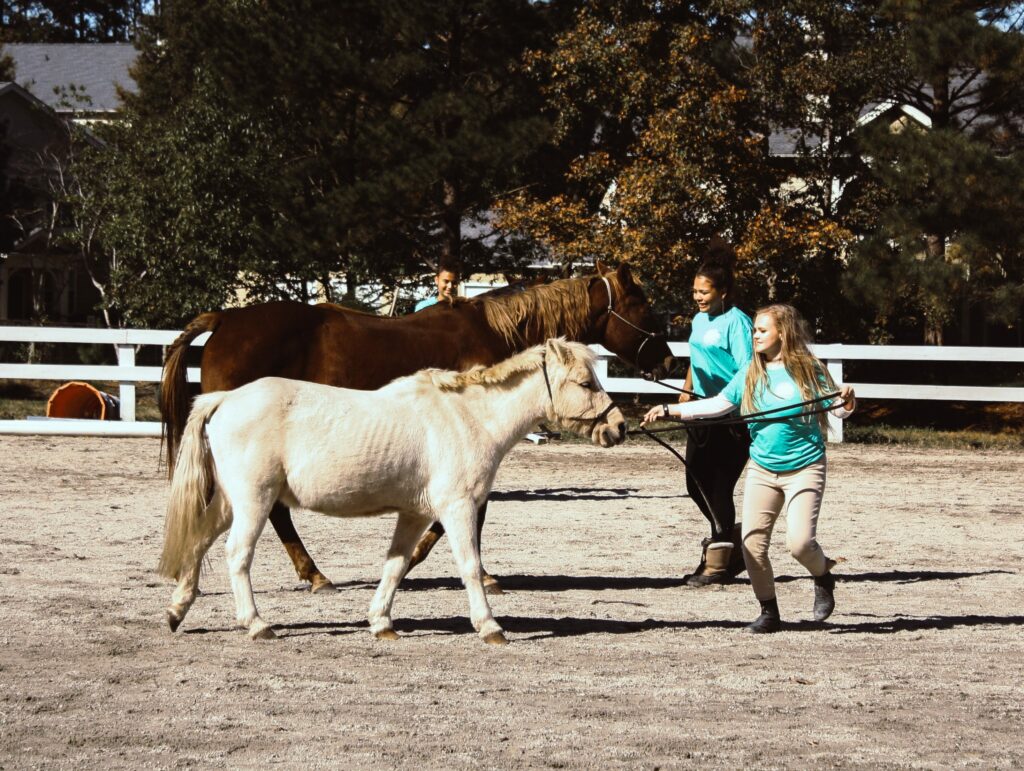Emmy is a registered dietician who meets with the CORRAL girls periodically to help dismantle diet culture, focus on nutrition and embrace intuitive eating.
March is national nutrition month! As a registered dietitian, I think this is an important topic to focus on for many reasons. One of the reasons I love national nutrition month is I see it as an opportunity to set the record straight when it comes to nutrition.
Nutrition is one of the most basic human needs. Being well nourished helps us thrive physically and mentally. I could spend quite a bit of time talking about specific macro and micronutrients and their roles in our health – but let’s save that for another day. There are two main nutrition problems I’d like to focus on:
- Equity in food access.
- Diet culture and how to overcome it.
The girls at CORRAL face many challenges – and for some equitable access to food may very well be among them. Diet culture is a monster that nearly all young women have to wrestle with. Let’s break these two nutrition issues down.
Equity in Food Access
Lower income and historically minority neighborhoods tend to have lower access to fresh fruits and vegetables. Many communities are reliant on corner stores and fast food for their day-to-day nutrition. These same communities also and have higher marketing for highly processed foods and sugar sweetened beverages. Highly processed foods tend to have fewer beneficial nutrients and more unnecessary calories. These populations also have higher rates of nutrition related diseases like heart disease, diabetes, and tooth decay.
We tend to think nutrition is all about will power – but it’s really very much about environments, access, and influence. When vulnerable populations are surrounded by highly processed foods, sugar sweetened beverages, and healthier options are expensive or unattainable, then the marketing trying to sell the tasty, cheap options is very effective.
If we want the most vulnerable populations to have better nutrition-related health outcomes, we must look for systems that provide access to healthy food and limit the marketing of unhealthy options. Higher income communities are not targeted as highly for highly processed foods or sugar sweetened beverages. This isn’t about dieting. It’s about changing systems to provide equitable access to high quality food.
One small practical way to help is to be part of the lunch team at CORRAL. You can provide healthy, whole food meals and snacks to the girls. You can provide fruits and vegetables to be available regularly. This increases their access to healthy options. This year in my volunteer work at CORRAL, I’m working with the girls to read nutrition labels, spot bogus health claims, and see through toxic food marketing.
Diet Culture and How to Overcome it
Americans now spend over $70 billion annually on weight loss. The diet industry and diet culture are large, wealthy, powerful – and they’ve got quite a strong grip on the subconscious of American women.
Diet culture is dangerous, and quite frankly sexist. To make money, women’s insecurities are specifically targeted. An unrealistic standard of beauty is held up as ideal. Honestly, diet culture is a bunch of mean girls. It leads to eating disorders, superficial goals, poor self-esteem, and really bad relationships with food. It convinces smart, capable women that hating their body and restricting food is just part of being a woman.
One of the most infuriating pieces of diet culture is that it leaves no room for grace. No room for error, no room for growth. You are either “on track” or you’re “off.” You’re either “being good” or “being bad.” Diet culture is pervasive – and it’s values are baked into our media. I think about CORRAL’s value of “Grace and Learning.” This value is in direct opposition with diet culture. There’s no shame when grace is involved. There’s room for growth and reflection. Diet culture doesn’t offer that. Diet culture will not go away on it’s own. It has to be replaced with something else.
Intuitive Eating
During my training to become a Registered Dietitian I was introduced to the philosophy of intuitive eating. Intuitive eating was developed by dietitians Evelyn Tribole and Elyse Resch. It offers ten principles that can really help break this cycle – and I believe is a super important concept for young women to be introduced to.
Intuitive eating is NOT a diet. It is not simple. It’s not a quick fix. It is a process, but it is an effective way to work through the “food issues” so many of us develop and the diet culture garbage that we are sold constantly. Diet culture preys on insecurities, where intuitive eating empowers a healthy relationship with food.
If young women can internalize these principles – it can help them be freed from the grip of diet culture. I highly recommend visiting www.intuiveeating.org to read more about each principle.
- Reject the diet mentality.
- Honor your hunger.
- Make Peace with Food.
- Challenge the food police.
- Discover the satisfaction factor.
- Feel your fullness.
- Cope with your emotions with kindness.
- Respect your body.
- Movement – feel the difference.
- Honor your health – gentle nutrition.
When all our “food issues” have been dealt with, we can begin to think about prioritizing our own health with gentle nutrition without diet culture high-jacking our progress. Gentle nutrition allows us to take into consideration what science tells us about how foods serve our bodies or don’t without putting them into “good and bad” categories. We can start thinking about food choices that support our health from a place of empowerment, not a place of deprivation or guilt. Gentle nutrition is NOT a diet. It focusses on progress, not perfection, and keeps in mind that one snack or meal is not going to cause a health crisis.
My goal for the girls at CORRAL is to be able to make decisions about food from a place of empowerment, not guilt.
Additional resources:





